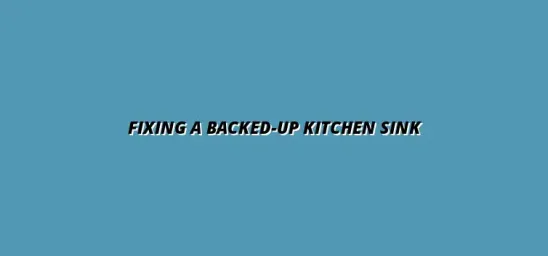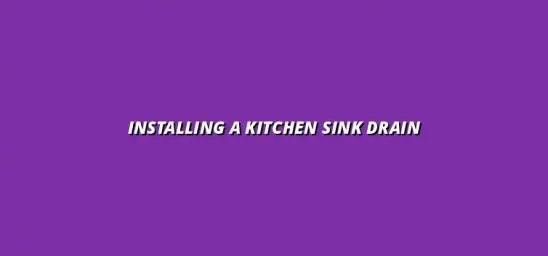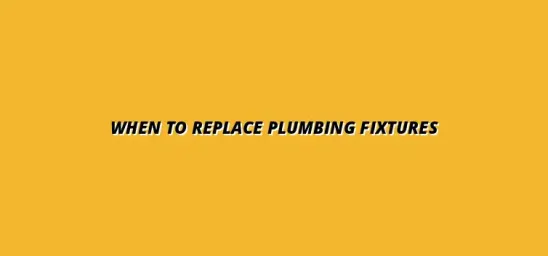
Extend Your Home's Plumbing Life
Understanding Plumbing Systems and Their Components
Plumbing might seem like one of those invisible parts of our homes, but it plays a crucial role in our daily lives. A well-functioning plumbing system ensures we have clean water for drinking, cooking, bathing, and more. Understanding the basics of plumbing can help you recognize issues before they become major headaches!
So, what exactly comprises a plumbing system in a home? It's made up of intricate networks of pipes, fixtures, and appliances that work together seamlessly. When we grasp the fundamentals, it becomes easier to appreciate how plumbing systems keep our homes running smoothly. Regular maintenance, like the tips found in this guide on plumbing maintenance for homeowners, can significantly extend the lifespan of your system.
The Basics of Home Plumbing Systems
What is a Plumbing System?
A plumbing system is essentially a network of pipes and fixtures that transport water in and out of your home. It includes everything from the water supply lines bringing fresh water in to the drain lines that take wastewater out. By understanding this system, homeowners can take better care of their plumbing!
Every plumbing system has two main functions: delivering clean water and removing waste. These systems rely on gravity and water pressure to function properly. Knowing how these elements work together can help you maintain the system effectively. Learning how to fix a leaky faucet is a great first step in basic plumbing maintenance.
Key Components of Your Home’s Plumbing
- Pipes: The backbone of the plumbing system, carrying water to various fixtures.
- Fixtures: Items like sinks, toilets, and bathtubs where water is both used and expelled.
- Valves: Devices that control water flow throughout the system, ensuring you can shut off water when needed.
- Water Heaters: Appliances that heat water for showers, washing, and other uses. Extending the life of your water heater is crucial; check out these maintenance tips for electric water heaters.
Each of these components plays a significant role in keeping your plumbing efficient. Regularly checking and maintaining these parts can prevent future problems and save you money in repairs!
Common Plumbing Issues and Their Implications
Identifying Signs of Plumbing Problems
Recognizing warning signs of plumbing issues is essential for homeowners. Some common indicators include slow drains, unusual noises from pipes, or water stains on ceilings and walls. Taking action early can save you from more significant repairs down the line!
Additionally, keep an eye out for unexpected increases in your water bill, which may indicate leaks. If you notice any of these signs, it's best to investigate further and address the problem as soon as possible. Preventing clogged drains is key; here are some tips to prevent clogged drains.
Potential Damages Caused by Neglected Plumbing
- Water Damage: Leaks can lead to mold growth, damage to walls, and costly repairs.
- Structural Issues: Persistent leaks can weaken a home's foundation over time.
- Health Risks: Stagnant water can attract pests and lead to health issues.
Ignoring plumbing problems might seem easier in the short term, but it can lead to severe consequences. Regular maintenance and prompt repairs are essential for protecting your home and ensuring your plumbing system works effectively!
Addressing Common Plumbing Questions and Concerns
Homeowners often find themselves with questions about their plumbing systems. It’s natural to want to know how to keep things running smoothly and when to seek help. By understanding some common concerns and questions, we can better care for our plumbing and avoid costly repairs!
In this section, we'll cover some frequently asked questions, when to call a plumber, and share important takeaways for maintaining your plumbing system. Let’s dive in! For essential kitchen plumbing maintenance, consult this helpful guide: Essential Kitchen Plumbing Maintenance Tips.
Frequently Asked Questions About Plumbing Care
One of the most common questions I hear is, “How often should I inspect my plumbing?” Regular inspections are vital! I recommend checking your plumbing at least once a year to catch any potential problems before they escalate.
Another frequently asked question is, “What are the signs of aging plumbing?” It’s crucial to recognize these signs early on, as they can save you from bigger headaches down the line. Here are some key indicators:
- Frequent leaks or drips from faucets and pipes.
- Discolored water or rust in your pipes.
- Low water pressure.
- Strange noises, like banging or gurgling, coming from your pipes.
How Often Should Plumbing Be Inspected?
Inspections should ideally happen once a year, but some homes may need them more often, especially if they have older plumbing systems. During an inspection, a plumber can look for leaks, corrosion, or any potential issues that might arise. This proactive approach can save you time and money in the long run!
To ensure your plumbing is in good shape, it can also help to keep a checklist of items to look out for. Consider these points:
- Check for visible leaks under sinks and around toilets.
- Inspect water heaters for rust or leaks.
- Flush toilets regularly to ensure proper functioning.
What Are the Signs of Aging Plumbing?
Aging plumbing can lead to several problems if not addressed. It’s important to be vigilant and know the signs! Beyond the basic checks, here are a few more signs that your plumbing may be aging:
- Water temperature issues—fluctuating hot and cold water.
- Foul odors coming from drains.
- Frequent clogs and slow drains.
Recognizing these signs early makes it easier to address them before they cause major issues! Proactive maintenance, as described in this article on preventing plumbing emergencies, can prevent many problems.
Professional Help: When to Call a Plumber
There are times when DIY fixes just won’t cut it, and it’s crucial to know when to call a professional plumber. Some plumbing issues can be complex and may lead to costly damage if not handled correctly. Here are situations when it’s best to get in touch with an expert:
- Persistent leaks that won't stop.
- Low water pressure that doesn’t improve.
- Overflowing toilets or severe clogs.
- Unusual noises or smells from your plumbing system.
Identifying Plumbing Issues That Require Expert Assistance
When experiencing plumbing issues, it’s essential to understand which ones require immediate expert attention. For instance, if you notice large puddles of water or hear water running when nothing is on, it’s time to call a plumber! They can assess the situation accurately and provide the necessary repairs. If you need a plumber in Birmingham, consider checking out this resource: Plumber in Billesley, Birmingham.
Some common issues that warrant a call include:
- Major leaks causing water damage.
- Backed up sewage lines.
- Gas line issues, which can be dangerous!
Finding a Reliable Plumbing Service
Choosing the right plumber can feel overwhelming, but it’s important! Start by asking friends or family for recommendations. Online reviews can also help you gauge a plumber's reliability and quality of work.
Here are some tips to ensure you find a trustworthy service:
- Check for licenses and insurance.
- Request estimates before any work starts.
- Read reviews and testimonials online.
- Ask about warranties for their work.
Final Thoughts on Plumbing Maintenance and Care
Maintaining your plumbing is a vital part of home ownership. When we take proactive steps, we can avoid significant issues down the road. Let’s summarize some key takeaways to help you keep things flowing smoothly!
Key Takeaways for Homeowners
Regular maintenance is the key to a long-lasting plumbing system. By being proactive, we can catch problems early and keep our homes safe and comfortable. Here are some essential reminders:
- Conduct annual plumbing inspections.
- Be aware of the signs of aging plumbing.
- Know when to call a professional for help.
The Importance of Proactive Plumbing Care
Proactive care can save you money and stress! By understanding your plumbing system and regularly checking its condition, you can catch issues before they become a disaster. This not only protects your home but also enhances your quality of life!
It’s essential to build a routine that works for you. Whether it’s monthly checks or seasonal maintenance, make it a priority!
Building a Long-Term Maintenance Plan for Your Plumbing
Creating a long-term maintenance plan is crucial for effective plumbing care. This plan can include scheduled inspections, cleaning, and any needed upgrades. By having this blueprint, your plumbing can run efficiently for years.
Consider keeping a log of when maintenance was performed. This will help you track your plumbing care over time, making it easier to spot any recurring issues.
Encouraging Sustainable Plumbing Practices
As homeowners, we should also be mindful of sustainable plumbing practices! Eco-friendly solutions can protect our environment while saving us money on utility bills. It’s a win-win!
Benefits of Eco-Friendly Plumbing Solutions
Using eco-friendly plumbing solutions can lead to significant benefits! These solutions often reduce water waste and enhance overall efficiency. Here are a few advantages:
- Lower water bills due to decreased usage.
- Reduced environmental impact.
- Increased property value with modern, efficient systems.
How to Contribute to Water Conservation Efforts
We can all play a part in conserving water! Simple changes can make a real difference. Here are some easy ways to contribute:
- Fix leaks promptly.
- Install low-flow fixtures and appliances.
- Be mindful of water usage in the shower and while washing dishes.
By adopting these practices, we not only extend the life of our plumbing but also protect our planet for future generations!





Fixing a Backed-Up Kitchen Sink
Prepare Your Plumbing for Weather
Installing a Kitchen Sink Drain
When to Replace Plumbing Fixtures
Fixing a Jammed Garbage Disposal